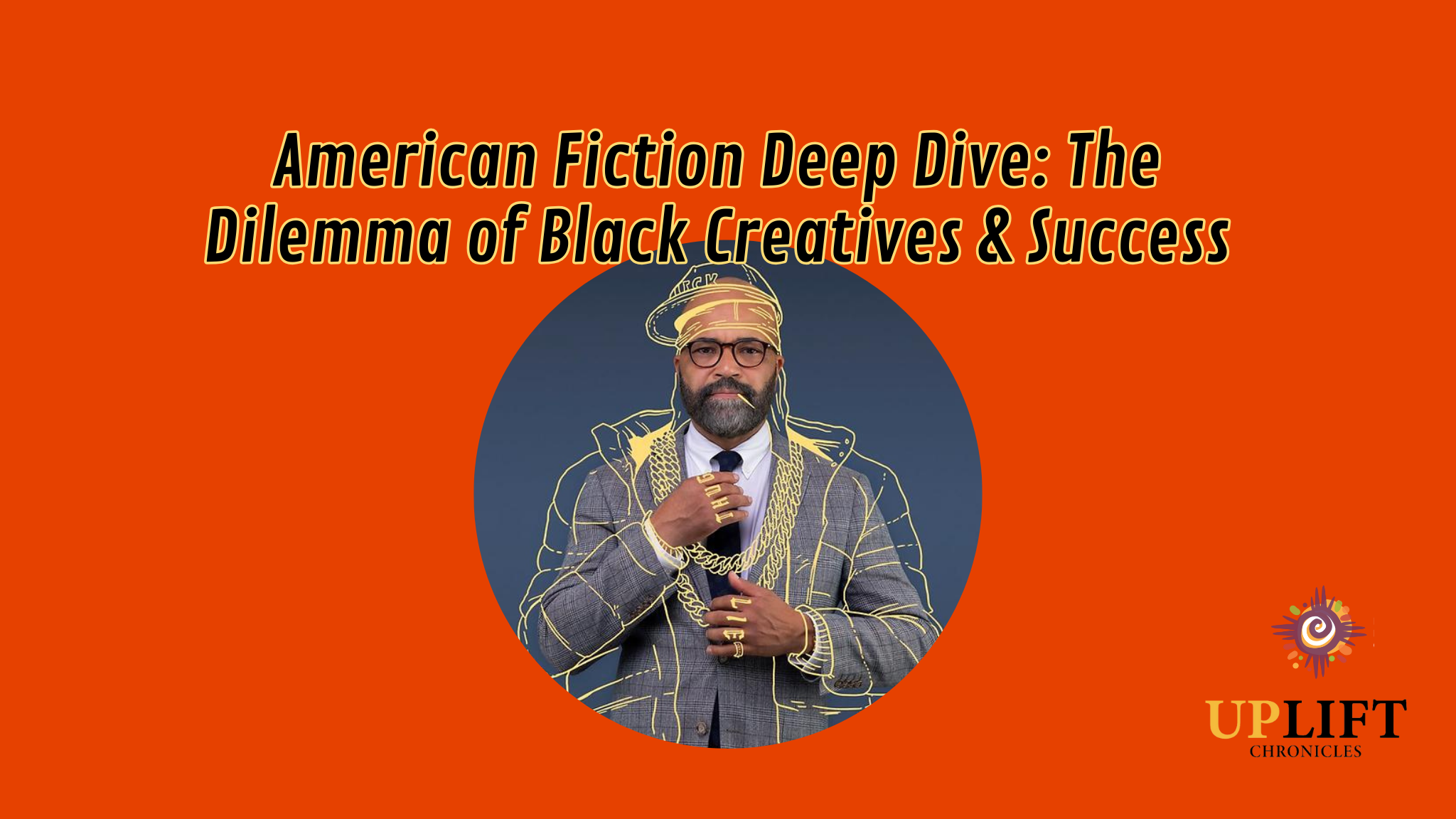
by Shannon Yvonne Moreau
In the Oscar-nominated film American Fiction—which won the 2024 Academy Award for Best Adapted Screenplay—a Black author faces a downward career spiral. Thelonious “Monk” Ellison (Jeffrey Wright, nominated for Actor in a Leading Role) has his latest book rejected with a request he write something “more Black.” Meanwhile, fellow author Sintara Golden’s (Issa Rae) book We’s Lives in Da Ghetto is a bestseller and lauded as authentic.
Frustrated, Monk writes My Pafology, full of Black stereotypes and tropes, in response. He’s sure his critics will see the error of their ways and back off. The opposite happens—an editor loves the book and offers him beaucoup bucks. Monk grapples with what it takes for a Black creative to be successful, and whether that’s synonymous with “selling out.” The movie underscores the fact that, all too often, Black folks gotta do what we gotta do. There’s no shame in that, yet it takes its toll on health and well-being.
Director Cord Jefferson said that before he’d even heard of Erasure, the Percival Everett novel upon which American Fiction is based, he got a note from an executive about a script he’d written: to make his character “Blacker.” I’m reminded of Gabrielle Union’s cheerleading captain character Isis in Bring It On. The original script contained “Black” language that bore no resemblance to actual Black American slang. “I am not the most Ebonically gifted person, but I recognize a made-up word when I see it,” Union writes in We’re Going to Need More Wine. “I worked hard to make Isis a real character. It is interesting to me that when people reenact my scenes, they turn me back into that caricature the director and I consciously took steps to avoid. They snap their fingers and say, ‘It’s already been broughten.’” That “broughten” line isn’t even in the movie. Clichés often override reality, and it’s exhausting.
Monk’s lucrative offer for his joke manuscript comes in the middle of a crushing familial health and financial crisis. The situation’s not uncommon and it’s exacerbated for Black Americans by factors such as health disparities and the severing of opportunities to build generational wealth. Monk faces a hard choice: soul integrity or physical care. Is it really “selling out” when it’s about doing what it takes to provide for your family and survive?
Monk is psychologically and emotionally tormented, which impacts the relationships he needs to thrive as a Black creative. Given the ongoing effects of oppression Blacks have to deal with, it’s especially cruel to add the shame of “selling out” to a plate already spilling over with burdens. We all make tough choices in life, but we can balance them with compassion for ourselves and others. Give a nod: I see you, we’re in this.
Mental health is critical to thriving. Artistic expression is crucial for an evolving, conscious society. Despite pushback to be mainstream, palatable, respectable, and to “correctly” represent, it’s imperative that Black folks keep writing and telling our stories.
As Cord Jefferson said, “It’s up to the people who make art, the people who make culture, to remind us that actually we need to mend these issues or else we’re really in a lot of trouble.”
New Mexico Crisis and Access Line
The Boris Lawrence Henson Foundation
Psychology Today Therapists in New Mexico Search Page
Psychology Today Therapists in Albuquerque Search Page
Writing Groups:
Land of Enchantment Romance Authors (NM Chapter of Romance Writers of America)
Croak and Dagger (NM Chapter of Sisters in Crime)
New Mexico Chapter of Society of Children’s Book Writers and Illustrators
NaNoWriMo—National Novel Writing Month

Leave a Reply